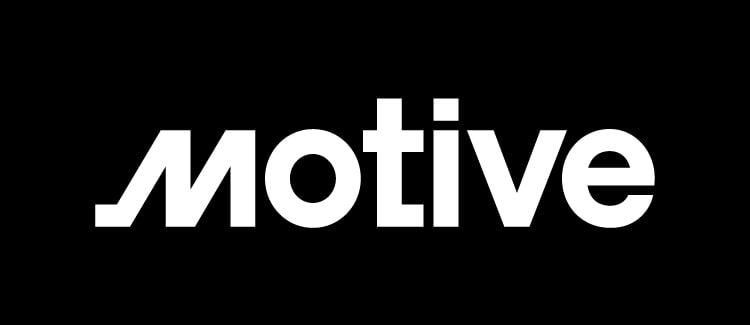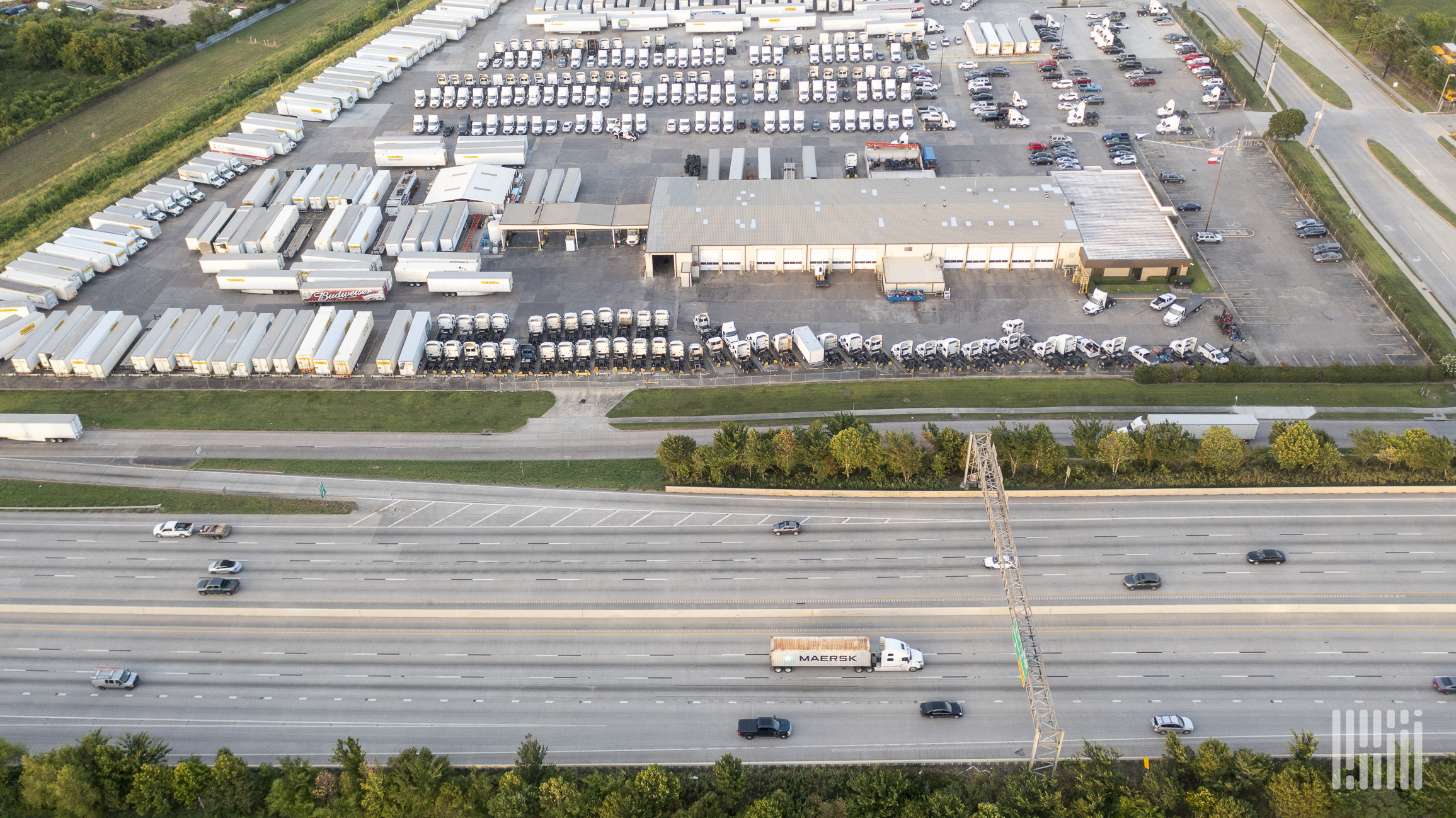Managing a fleet of trucks is a complex task that requires powerful tools to ensure efficiency, safety, and cost-effectiveness by reducing manual back-office work.
In the world of trucking, utilizing the right software can be the difference between staying competitive or falling behind. We’ve assessed the market to bring you the best software solutions to streamline your fleet trucking operations.
Quicklook: Top fleet trucking solutions in 2024
- Best for flexibility: Rose Rocket
- Best for small- to mid-sized fleets: Truckbase
- Best for real-time fleet tracking: Trimble
- Best for driver management: Motive
- Best for scalability: Samsara
- Best for last-mile deliveries: Onfleet
6 best fleet management software solutions
Below are some of the best options for fleet management software that will streamline your fleet operations.
Rose Rocket

Rose Rocket stands out as a premier solution for streamlining fleet trucking operations due to its flexibility and suite of powerful features designed to optimize transport logistics.
This innovative software offers a fully modular platform that adapts to the unique needs of any fleet, ensuring that companies can tailor the system to their specific operational requirements.
With Rose Rocket, businesses benefit from real-time dispatch, integrations with existing tools, advanced reporting, and transparent communication channels that keep both drivers and customers in the loop.
By leveraging this adaptable system, fleet managers can significantly improve efficiency, reduce unnecessary administrative burdens, and provide exceptional service, making Rose Rocket a strategic choice for anyone looking to elevate their fleet management practices.
Best for: Flexibility
Features
- Historical lane data algorithms
- Dwell time reporting
- BI tools for evaluating profitable regions/customers
- Uses AI and machine learning algorithms to analyze trucking market data
- Ingests and evaluates historical carrier rate data
- Assesses trucking freight rates, volumes, equipment lanes, driver networks
- Full trucking and logistics platform suite
Benefits
- Increases revenue per mile through better truck lane planning
- Reduces empty miles and backhaul costs
- Real time margin insights
- Improves lane utilization and carrier network optimization
Disadvantages
- Requires training for full value realization
- Requires extensive fleet truck service data to ensure algorithms are trained well
Pricing: Reach out for a customized quote
Truckbase

In the realm of fleet management software, Truckbase emerges as an excellent choice, particularly for small- to mid-sized fleets.
Truckbase supports a range of functionalities including route optimization, maintenance scheduling, and compliance management, all packaged in a cost-effective platform that doesn’t sacrifice quality.
Importantly, it offers the agility smaller fleets need to compete effectively, paving the way for growth and profitability in the competitive trucking sector.
Best for: Small- to mid-sized fleets
Special features
- Mobile app for driver schedules and document uploads
- Customized solutions
- AI-powered load creation
Benefits
- Suitable for small fleets and can scale with your growing operations
- Dedicated account manager for onboarding and support
Disadvantages: No transparent pricing
Pricing: Contact Truckbase for details
Trimble

Trimble is an exemplary choice for fleet management software, notably for its real-time fleet tracking capabilities. With Trimble, businesses can gain immediate insights into the location and performance of their vehicles, enhancing the responsiveness of fleet operations.
This real-time data is critical for timely decision-making and optimizing routes, which leads to increased productivity and reduced operational costs.
The emphasis on live tracking ensures that fleet managers are always informed and ready to address on-the-road challenges swiftly, maintaining a fluid and efficient transportation service.
Best for: Real-time fleet tracking
Special features
- Fuel price tracking
- System alerts
- Geofencing
Benefits
- Real-time vehicle tracking
- Reduce driver error with live tracking and feedback
- IFTA fuel tax data
- Driver vehicle inspection reports (DVIR)
- Fuel use reporting and analysis
- Engine status reports
Disadvantages
- Expensive upfront hardware costs
- Relatively complicated installation
Pricing: $1,200 upfront for hardware with plans starting at $43 per month
Motive

Motive is a top contender in the fleet management software market, offering a range of features that optimize driver management and improve overall operations. Its intuitive interface makes it easy for drivers to use, increasing efficiency and reducing training time.
Additionally, Motive’s driver performance tracking allows fleet managers to monitor driving habits and identify areas for improvement, leading to safer roads and reduced fuel consumption
Best for: Driver management
Features
- AI-assisted, real-time safety warnings for drivers
- Automated driver coaching
- Virtual geofenced parameters aid in vehicle and cargo theft recovery
- Real-time GPS fleet tracking and location history records prevent unauthorized vehicle use
- Fuel monitoring
- Dashboard view for fleet tracking
Benefits
- Improved safety compliance
- Reduced fuel usage
- Safer roads
- Decreased coaching time for safety managers
- Improved risk management
Disadvantages: Issues with freezing apps or getting stuck in drive mode
Pricing: Free trial; contact Motive for details
Samsara

Samsara is often considered ideal fleet management tool due to its user-friendly interface and comprehensive feature set. It offers real-time GPS tracking, maintenance scheduling, and driver performance monitoring, all in one platform. Its scalability enables fleets to grow without needing to switch solutions, making it a safe long-term investment. Moreover, Samsara’s cloud-based system ensures easy access to data anytime, enhancing decision-making capabilities.
Best for: Scalability
Features
- Fleet maintenance
- Route planning
- Fuel management
- Delivery scheduling and management
- Trailer tracking
- Dash cams
- Real-time vehicle diagnostics
- Compliance
Benefits
- Excellent value
- Strong functionality
- Great customer support
- Easy to use
Disadvantages
- Some users report bugs, but customer service is responsive
- When new updates are released, app may slow down for a few days
Pricing: Complete a company questionnaire and schedule a demo to learn more.
Onfleet

Onfleet is a leading fleet management software with a focus on last-mile deliveries. Its advanced route optimization and dispatching capabilities enable efficient delivery planning and execution, ultimately leading to faster delivery times and improved customer satisfaction.
With real-time tracking and proof of delivery features, Onfleet ensures transparency and accountability in the final stages of the delivery process. This makes it an ideal choice.
Best for: Last-mile deliveries
Features
- Automated dispatch
- SMS notifications
- Integrations with other vehicle management systems
- Fleet tracking
- End-to-end route planning
- Communication
- Analytics
Benefits
- Easy onboarding process
- Driver app available for iOS or Android
- Drag-and-drop functionality
- Add and delete tasks with ease
Disadvantages:
- System may be unavailable during maintenance periods
- Somewhat limited analytics
- Limited data entry fields
Pricing: Launch for $500 per month, scale for $1,150 per month; 14-day trial
What to consider when streamlining your processes
When choosing a fleet management tool, key features to consider are crucial for optimizing operations and maximizing efficiency. These features include:
- Real-time GPS tracking: Gain visibility into the precise location of each truck in your fleet, enabling better coordination and monitoring.
- Dispatch and scheduling: Effectively allocate tasks to drivers and enhance route planning to streamline operations and improve productivity.
- Maintenance and alerts: Stay on top of vehicle maintenance schedules, receive timely notifications for service requirements, and ensure your fleet operates smoothly.
- Fuel management: Monitor fuel consumption, analyze costs, and pinpoint areas for cost-saving measures to enhance fuel efficiency.
- Compliance management: Ensure regulatory compliance by managing adherence to DOT regulations and industry standards, safeguarding your fleet’s legal standing.
- Reporting and analytics: Access comprehensive data insights to make informed decisions, optimize fleet performance, and drive cost reductions effectively.
Reduce manual fleet trucking tasks by streamlining operations
Finding the right software for your fleet isn’t just about checking off feature lists — it’s about finding a solution that fits your specific operational needs and budget.
Pay attention to fleet management trends and consider starting with a trial period or demo, and take advantage of customer support to get the most out of your chosen software.
With the right software in place, you’ll be able to streamline your fleet operations and stay ahead of the competition.
FAQ
A fleet in trucking refers to a group of trucks or vehicles that are owned and operated by a single company or organization for transportation purposes. This can include a variety of vehicles such as tractor-trailers, delivery vans, and other commercial vehicles. Fleets play a critical role in the transportation industry by enabling companies to efficiently move goods and materials from one location to another.
The number of trucks considered a fleet can vary depending on the industry and company. Generally, a fleet is composed of at least five vehicles, but some companies may have hundreds or even thousands of trucks in their fleet. The size of a fleet will depend on the needs and operations of the business it serves, so there isn’t a set number that defines a fleet, but rather the number will vary based on the specific context.
Owning a fleet of trucks can be profitable if managed efficiently. Fleet owners must consider factors such as fuel costs, maintenance expenses, and driver salaries to ensure that their operations are financially sustainable. Additionally, implementing effective fleet management software can help optimize routes and improve overall efficiency, leading to potential cost savings and increased profits. Ultimately, the success of a fleet depends on careful planning, strategic decision-making, and proper management.



